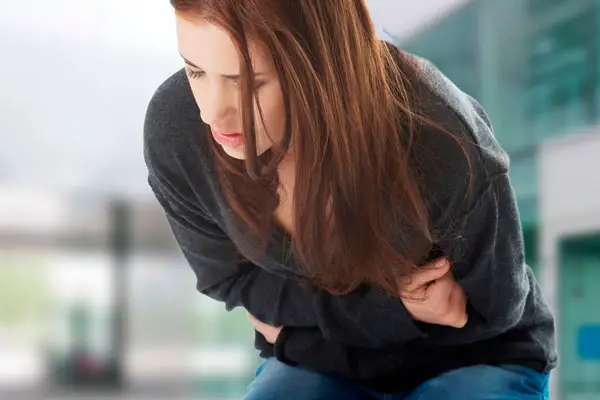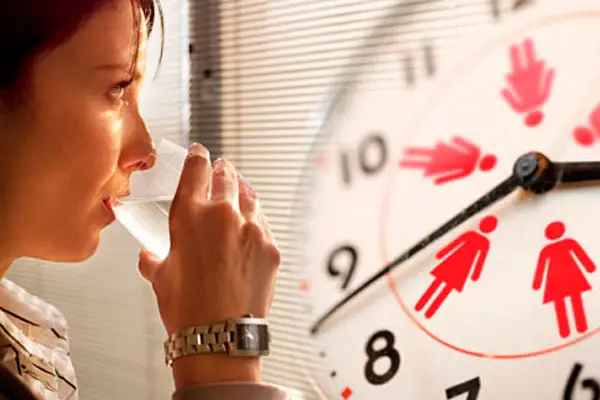What is interstitial cystitis?
Interstitial cystitis, also called painful bladder syndrome, is a chronic illness, most often suffered by women, in which the patient experiences extreme and often constant bladder pressure and pain.
The pain can range from mild to severe and is often not the same for all sufferers, making it rather difficult both to diagnose and then to manage from person to person.
There is currently no cure for interstitial cystitis, and often the symptoms are simply managed with medicines and pain relief.
Research is still being conducted about interstitial cystitis, and to date no absolute cause for the chronic condition has been found.
However, what doctors and other specialists do know is that the pain that patients with interstitial cystitis experience is caused by inflammation of the tissue in the bladder.
Sometimes, things can be made worse if the patient has specific allergies or suffers from immune problems.
Are natural remedies better?
For chronic conditions and chronic pain, there are often no easy or quick cures. Instead, doctors tend to prescribe pain medications so that patients can manage their discomfort.
However, depending on the medication that is prescribed, there can be a range of difficult and even dangerous side effects from taking pain relief, particularly if that pain relief is codeine or morphine based.
Side effects of these sorts of medications affect different people in different ways, so doctors cannot predict what medicine is best for each and every patient without long and protracted trials.
Many people, therefore, decide to try alternative medicines and natural remedies so that they can avoid suffering from side effects such as nausea, paranoia and even addiction.

Natural remedy alternatives for interstitial cystitis
Because of the problems commonly associated with using pain medication for long periods of time, doctors are coming up with more and more viable alternatives to traditional western medicine to help those suffering from chronic pain conditions such as interstitial cystitis.
There are a number of fantastic alternative medicines that are known to help reduce the pain that is caused by this condition and that can even make intervals between bouts of pain longer.
Changing your diet
One of the best ways to start taking control of interstitial cystitis is by taking control over the things you are putting into your body.
There is a clear and established link between processed, sugary, fatter and salty foods and chronic inflammatory conditions such as interstitial cystitis.
Eating fresher and unrefined foods, including particularly fruits, vegetables, white meats, fish, olives, nuts and seeds, for instance, you may well start to see the time between your condition flare ups lengthening and the actual pain reducing. Caffeine, chocolate, fried foods, junk food and alcohol are all to be avoided if at all possible.
Other, more specific, things that you should try to avoid if you suffer from interstitial cystitis are the following:
Acidic fruit juices, particularly cranberry – this information might seem strange to those who have had urinary tract infections before, since doctors insist that drinking plenty of cranberry juice is actually a really great way to flush the infection out.
However, interstitial cystitis is very different from normal urinary tract infections, and it is recommended that you avoid it completely if you suffer from this chronic condition.
Because it is naturally so acidic, it can increase the pH of your urine and thus further inflame the lining of your bladder, making your discomfort even worse.
Tomatoes – although you ought to be eating as much fruit and vegetables as you possibly can, both for your general health and to decrease the amount of pain caused by interstitial cystitis, tomatoes are one of the fruits that need to be cut out as much as possible.
Tomatoes are crammed full of potassium and are acidic, which can cause the same problems described above with acidic fruit juices.
Artificial food colorings – for those trying to eat healthier and less processed foods anyway, this should not be too much of a problem, but it is always worth looking out for foods that have artificial colorings in them.
These have been linked to flare ups of interstitial cystitis in very many patients and, although scientists have not yet explained why, they do suggest staying away from them as much as possible.
Yeast and foods that promote yeast – these can be quite difficult to avoid, since things like sugar, vinegar and yeast (which is often found in bread product) can be found in many foods.
However, it is still worth trying to avoid these sorts of foods as much as possible, as they have been linked to increasing the frequency and intensity of interstitial cystitis flare ups.

Drinking more
Your bladder is an important part of your body processing the water that you drink. By drinking more day to day and making sure you take on plenty of fluids throughout the day, those suffering from interstitial cystitis will soon start to see a difference in the pain that the experience.
You need no just drink water, either. Scientists have now said that drinking milk (as long as you are not lactose intolerant), vegetable juices, fruit teas (or decaffeinated tea) and reduced sugar squash are all ways of ensuring that your body gets enough water on a daily basis without just having to drink glass after glass of tasteless liquid.
Move around more
Part of keeping your body happy and healthy is making sure you move around enough. Exercise is well known to help ease aches and pains, both those that are caused by chronic illnesses and those that are not, all over the body.
In conjunction with a good diet, regular exercise – at least three times a week for around fifty minutes – can keep problems like heart disease and diabetes at bay.
Not only that, but making sure that your body is fit can also help it to fight off other problems such as urinary tract infections, which can make the pains associated with interstitial cystitis even more difficult to bear.
It has also been noted by specialists that those who suffer from the condition and who are overweight are more likely to experience more intense pain for longer periods of time, so shedding the weight and keeping it off can help to drastically improve not only your overall quality of life, but also help to reduce the amount of pain that you suffer as a result of interstitial cystitis.
Do not smoke
If you smoke, stop. If you do not smoke, don’t start! Smoking is linked to a worsening in many chronic pain conditions, including interstitial cystitis, so it is always recommended by doctors that you do not smoke if you suffer from one of them.
Additionally, smoking has been linked to bladder cancer, which is made worse by the interstitial cystitis. The pain of the two illnesses combined is extraordinary and is something that should be avoided at all costs.
Introduce supplements into your daily life
Unlike more traditional modern medicines, it is nearly impossible to overdose on natural medicines and supplements, which is one of the main reasons that so many people are now opting for more natural remedies to treat their interstitial cystitis. Calcium citrate has been proven to help alkalinize urine.
Since it is the acidification of urine that is one of the main causes of the pain of interstitial cystitis, taking a daily calcium citrate supplement can help to drastically decrease the irritation to the bladder.
There are, to date, no known side effects to taking this supplement, no matter what the dosage. Bromelain is another popular supplement that sufferers of interstitial cystitis take daily.
This supplement works as an anti-inflammatory medicine, like many other modern medicines, except that there are no nasty side effects associated with taking it in small or large doses.
If you are considering taking one of these supplements, check with your doctor that they will not interact negatively with other medicines that you are being proscribed at the same time.
Get used to drinking herbal tea
As mentioned above, substituting your normal, caffeinated tea with herbal teas (which are naturally decaffeinated) is a great way of keeping your diet relatively normal while also cutting out caffeine which can make the pains caused by interstitial cystitis even worse.
For added help against the pains of interstitial cystitis, however, there are a number of great teas that contain natural ingredients known to work as painkillers and have anti-inflammatory and antiseptic properties, for instance. Just a few are named below:
Cleavers – this herb can be brewed as a delicious tea that has been used for many years in traditional medicine as a urinary tract tonic. Not only does this mean that it can help stave off infections that can make the pains and complications of interstitial cystitis even worse, but it can also help to reduce the pain from day to day.
Corn silk – when you are in pain or discomfort, this is the tea to try. Simply brew this herb into a tea and drink it while you are suffering. Soon, you will feel your pains being soothed. Corn silk is well known to have diuretic properties, which means that it can help you pass the acidic urine that is causing pain and problems and ease the pain that you are experiencing.
Marshmallow root – not only does this tea taste absolutely delicious (although not quite as sweet as marshmallows), is also has soothing properties. Besides drinking it as a hot tea, it is also possible to make a cold infusion of marshmallow root.
Usnea – usnea is a herb that can grow only where the air is almost completely free from pollution. It has natural antiseptic properties and so is perfect to take as a tea to help soothe your pains and to heal after a particularly bad flare up of interstitial cystis.
Homeopathy
Homeopathy is a treatment that some people swear by and other people do not trust. This is mainly because homeopathy does not work in all cases.
Like many alternative medicines and natural therapies for chronic conditions and illnesses, each patient is different and needs to treat their conditions in different ways.
However, if you have nothing else to lose, homeopathy is a great natural remedy to choose.
Because only a very tiny amount of the actual active ingredient is used in homeopathy sugar tablets and tonics, there is no possible way to overdose on the active ingredient.
Often, doctors have agreed that homeopathy can work as a placebo, and can help to reduce the pain of those suffering from chronic illnesses such as interstitial cystitis.
Acupuncture
Once again, like homeopathy, acupuncture is not guaranteed to work in 100% of cases. However, if you are sick of taking pills that make you nauseous, give you headaches or that carry a risk of getting you addicted to pain medication, then it is worth trying this alternative therapy out and seeing if it can help you.
Acupuncture has been used for many hundreds of years as a way to relieve symptoms of various illnesses, including the pains caused by interstitial cystitis. Many patients have felt as though acupuncture has helped to make their pains bearable, even after only a few regular sessions.

Bladder training
It has been proven by scientists that urinating frequently and to set intervals – particularly when you are drinking enough fluids all throughout the day – can help to reduce the frequency and severity of flare ups for those suffering from interstitial cystitis.
By making a schedule and sticking to it, you may find that you suffer less pain as the urine does not get chance to build up in your bladder and inflame the lining of your organ.
The ideal set interval differs from person to person, but most doctors may suggest an interval of half an hour to an hour, at least to begin with. After that, you may want to begin training yourself to go after longer intervals.
However, start off with thirty minutes and try to be very strict about it. Ask your doctor for more tips about bladder training including learning techniques to help you control your urinary urges with slow breathing exercises or distraction methods.
Reduce your stress with meditation
Stress has been linked to severity of pains suffered by those with interstitial cystitis. Lots of people who are under a great deal of pressure feel the pain more keenly and most frequently.
Most doctors, therefore, will recommend that you try to cut stress out of your life. Most people find this difficult.
However, there are a great number of very effective meditation techniques out there that you might want to try that have been proven to help reduce stress levels in people – both those suffering from interstitial cystitis and those who do not suffer from the condition.
Try to dedicate at least fifteen minutes each day to sitting quietly, emptying your mind and focusing on your breathing. This way will also help you listen to your body and find out what it needs to work more effectively, and also to meditate on the other ways in which you can improve your lifestyle while living with interstitial cystitis.
How to cope with interstitial cystitis
Coping with chronic pain conditions is difficult, and can wear you down after a while, particularly if you know that there is no cure for your illness. However, there are ways to manage problems like interstitial cystitis.
By making some or all of the changes mentioned above, you may find that the pain starts to get less severe and that flare ups become fewer and further between.
You may even find that you can go years without a relapse (although, of course, interstitial cystitis has no cure and can never go away forever).
Until doctors and researchers find out exactly what causes interstitial cystitis, no valid cure is going to become available for those who suffer from it.
However, what more scientists agree on is that by leading a healthy life – eating the right things, drinking enough water, cutting out smoking and alcohol, moving around enough and reducing the amount of stress in your life – you are guaranteed to find things easier in general.
All these things can also reduce the amount of pain that suffer as a result of the condition.
Before taking any supplements or trying alternative therapies such as homeopathy and acupuncture, you should consult your doctor and make sure that they are aware of your intentions.
This way they can amend your medication dosages if necessary, and even help you to find alternative pain medications if you feel as though side effects of the ones you are currently taking are too different to deal with.
There is no shame in asking for help, and your doctor will be keen to help you find the best way for you to live your life with interstitial cystitis.
Resources:
https://www.womentowomen.com/urinary-incontinence/interstitialcystitis/
http://www.mayoclinic.org/diseases-conditions/interstitial-cystitis/basics/lifestyle-home-remedies/con-20022439
http://www.healthcommunities.com/interstitial-cystitis/alternativetreatment.shtml